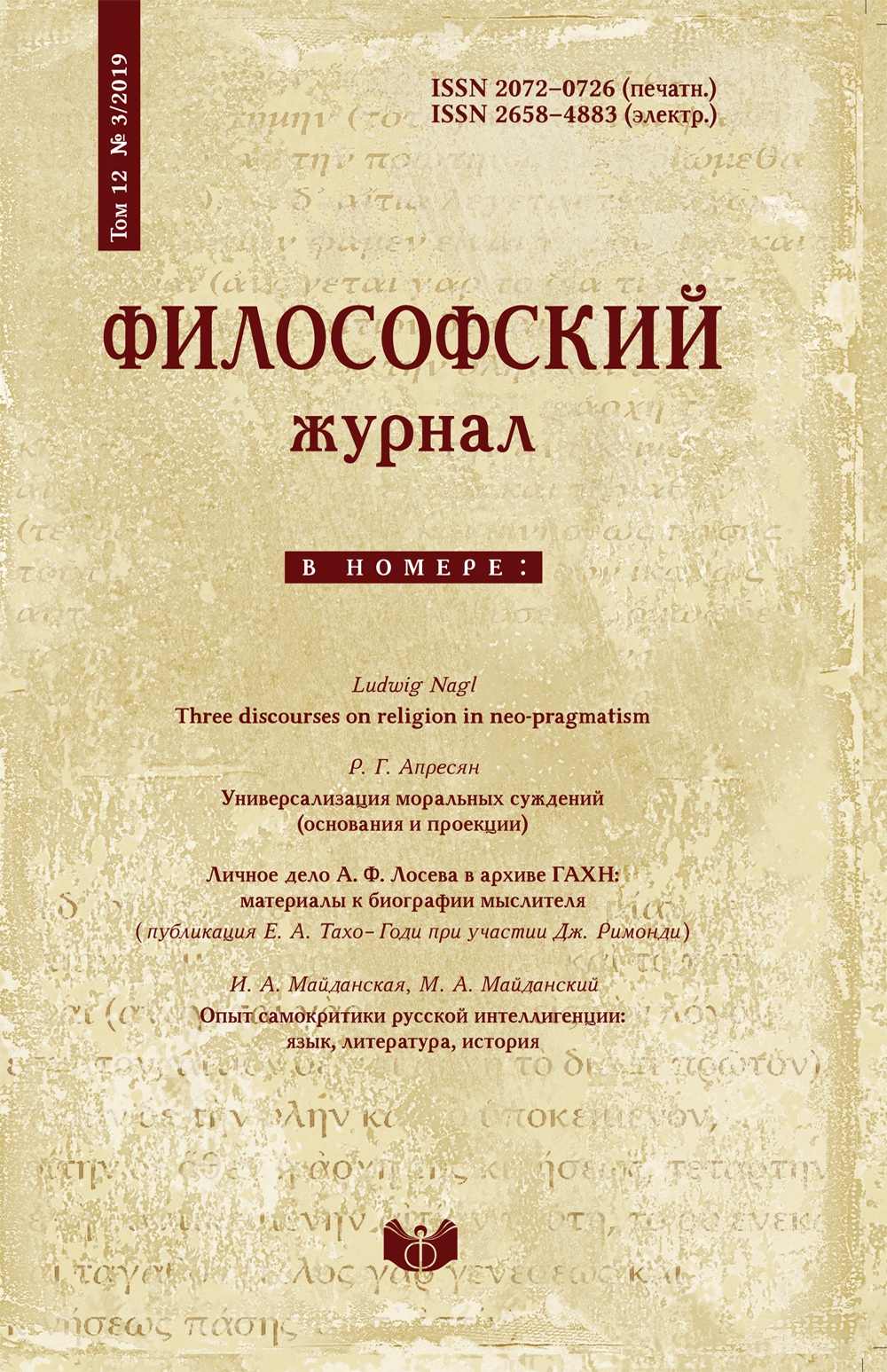The universalization of moral judgements (premises and projections)
DOI:
https://doi.org/10.21146/2072-0726-2019-12-3-110-125Keywords:
morality, universality, universalizability, universality test, moral judgement, moral conflict, equitability, archaic consciousness, Sophia Yakobson, children’s moral consciousnessAbstract
Universalization of moral judgments is often interpreted in the spirit of the first practical principle of Kant’s Categorical Imperative: a moral agent, having chosen a principle (maxim) of an action, correlates it with the universal law, trying to explore whether the chosen principle could be imagined as the universal law. The correspondence of a partial principle to the moral law gives grounds to consider it as an ethical one. However, in his discussion of judgments of taste, Kant, developing a similar reasoning, shows that in the judgments of taste, a person correlates them with human reason in general, which is discovered in the judgments of other people. Thus, judgments are tested for universality in relation not to the universal law, but to the judgments of others. Hegel takes a similar approach in understanding the universalization of judgments (decisions, positions). But unlike Kant, he sees the process of universalization based not in thinking, but in the practical interaction of people acting in accordance with their community morals, striving to satisfy their interests and understanding that this is possible only if they take into account the interests of others. In the context of models proposed by Kant and Hegel, the article analyzes the discoursive and communicative experience revealed in Homer’s epic and the experimental psychological research of children's moral consciousness by Sohia Yakobson. This material allows to draw a conclusion about the diversity of thinking procedures, with the help of which the universalization of moral judgments is made to overcome their situational limitation, particularity, partiality, pragmatism, and is carried out by means of projection of an individual’s moral judgments on the attitudes of others, personalized samples, norms accepted in the community and imprinted in culture general moral principles.






